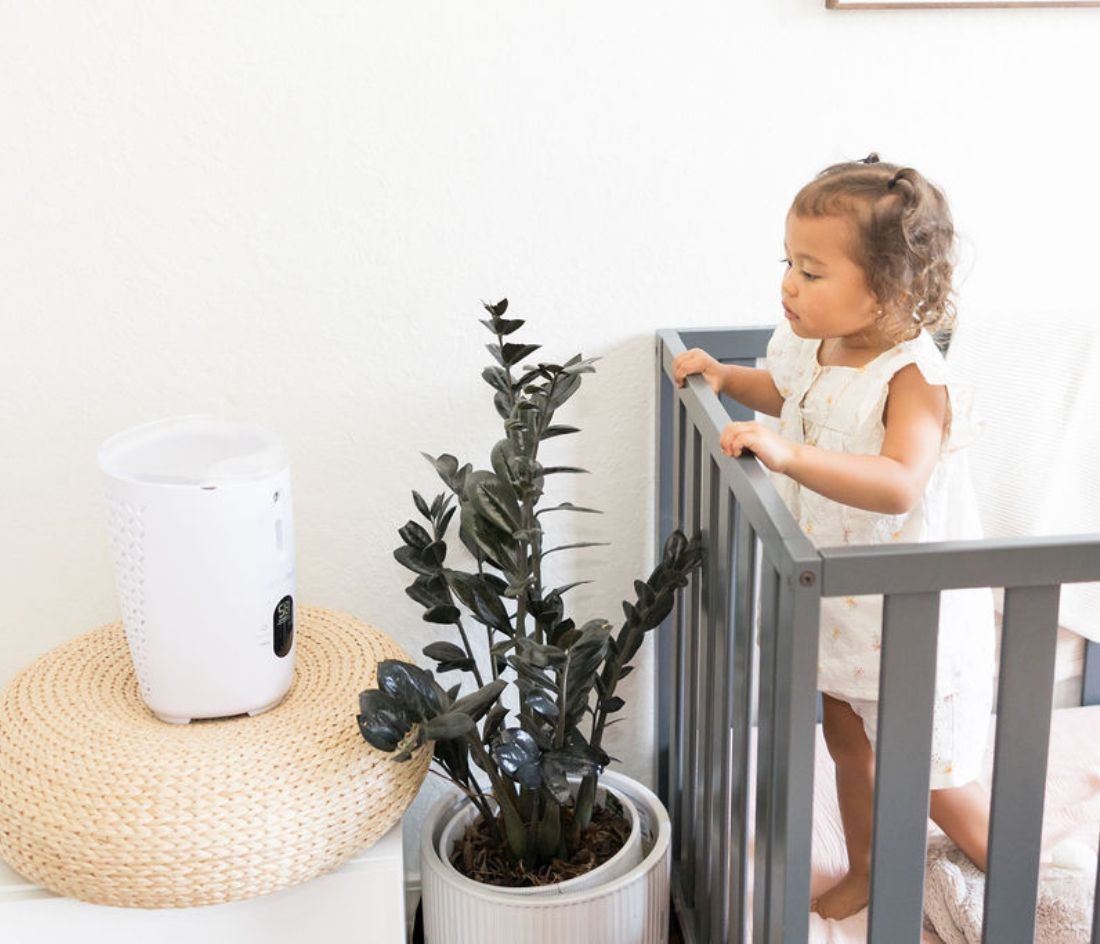Guest post by Holly Sanford, RN, BSN, CPEN
If you have little ones, you’ve most likely heard or experienced the dreaded respiratory syncytial virus, or RSV. Learn 5 tips to minimize the spread of the virus into your home.
RSV is one of the most common causes of illness among children (and can affect you and the grandparents as well!). Each year, hundreds of thousands of little ones are seen in outpatient clinics and tens of thousands of children are admitted to the hospital due to an RSV infection in the United States. Between 100 and 500 RSV-related pediatric deaths occur annually in the US. RSV impacts children less than a year old more severely due to the severe nasal and lower airway congestion that requires constant suctioning, and sometimes oxygen (think Nozebot!). Fortunately, most children have mild cases of RSV and experience cold-like symptoms.

5 Tips to Prevent the RSV From Entering Your Home
With schools opening and cooler months approaching, peak season for RSV infections is inevitably coming. Read these five helpful tips to prevent RSV from entering your home.
1. Hand Hygiene
The best way to prevent the spread of infection is to facilitate hand washing and hand sanitization. Follow these tips to encourage clean hands around your home (including your kindergartner!):
- Store hand sanitizer in your car to apply before and after school and play activities
- Establish a routine to wash hands before snack and mealtimes
- Encourage children to keep hands out of the mouth and nose
- Help children learn to cough or sneeze into the elbow instead of the hands

2. Sleep
Sleep is essential to maintaining a healthy immune system response. Sleep deprivation may lead to a decrease in cytokines, which are proteins that the body uses to respond to infection. Follow these tips to help your little ones get the best night’s sleep:
- Maintain a consistent routine that relaxes your child, including reading books, singing and cuddling. Some families find it helpful to diffuse kid-friendly essential oils relax little ones.
- Set a bedtime schedule and stay committed to the times
- Limit screen time at least two hours before bedtime
- If your child is not sleeping well through the night, shorten nap times. Your child should be sleeping within these amounts of time:
- Newborns: 14-17 hours
- Infants: 12-15 hours
- Toddlers: 11-14 hours
- Preschoolers: 10-13 hours
- School-aged children: 9-11 hours
3. Nutrition and Hydration
Eating nutrient dense foods will boost your child’s immune system and a balanced diet full of vitamins and minerals enhances the body’s ability to fight infection. Immune cells need a variety of nutrients to properly develop. Offer your child these foods to help build the immune response (sometimes you have to be sneaky or creative!):
- yogurt with probiotics
- protein, including fish and eggs
- a variety of fruits, vegetables and legumes
- whole grains

Additionally, adequate fluid intake is critical to maintaining a healthy immune system. Encourage little ones to drink water and limit caffeine or high sugar options.
4. Sanitize Commonly Used Spaces
Especially during the fall and winter months, viruses love to collect on high traffic surfaces. Below are some tips for sanitizing in the home:
- Provide regular sanitization to toys and items that are frequently with the child
- Follow the instructions of the cleaner you are using to disinfect. Products may differ in the amount of cleaner or time before sanitization has occurred. Be sure to protect skin by wearing gloves while cleaning.
- Look for high touch areas to clean, including counter tops, light switches, doorknobs, car handles, phones, tablets, etc.
5. Limit Sick Contacts
While you may not be able to completely control sick contacts, particularly if your child is in school or daycare, do your best to minimize interaction with people who have cold-like symptoms. Common RSV symptoms include runny nose, coughing, sneezing, fevers, decreased appetite and sore throat. The following tips can help minimize sick contacts:
- Limit sharing food and beverages
- Wash each family member’s water bottle nightly (you never know who may have accidentally grabbed a drink at daycare or school!)
- If a family member is sick, temporarily encourage separate activities or provide communal activities in the home that allow space
- Sanitize the Nozebot if using the device to suction multiple children
- LET NO ONE KISS YOUR BABY! (EVEN THOUGH YOUR BABY IS REALLY CUTE)
If you find that RSV or a similar cold virus has made its way into your home, monitor your child for congestion, fevers and labored breathing. The Nozebot is an excellent way to thoroughly suction your child’s nose to increase comfort and maximize fluid intake. Notify your provider if you are ever concerned about your child’s breathing or hydration. Keep your child home from daycare/school until the child is fever free without medication for 24 hours and until the child does not need additional help with suctioning, breathing treatments, etc. These five tips to help prevent the RSV virus from entering your help may just be some of the reminders needed to keep that dreaded bug away this season!
If you're looking for more info on RSV, check out these resources here:
Holly Sanford, RN, BSN, CPEN is a mother and a pediatric nurse of 9 years with a lifelong passion for helping children and their families. In her free time, she loves cooking new recipes, traveling to unique places and staying active with her family.
The Nozebot is a battery-powered suction device designed to clear nasal congestion in babies and children.



